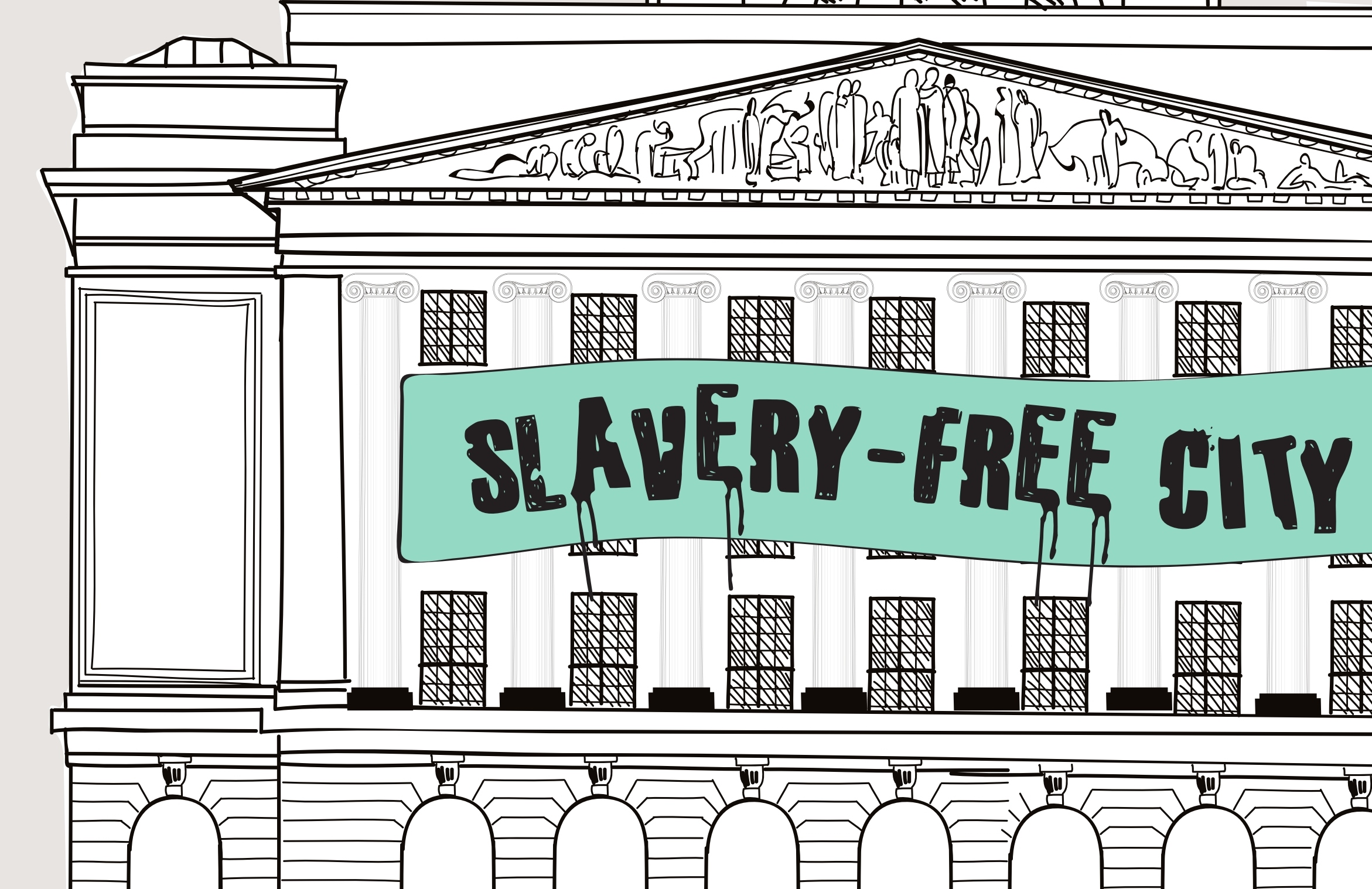
March 23, 2017, by Rights Lab
Thinking globally, acting locally: is local public policy anti-slavery’s missing link?
In July 2016, UK Prime Minister Theresa May promised to ‘flex the muscle of all parts of the UK Government’ in eradicating modern slavery. Yet whilst her government seeks to ‘get a real grip’ on policy at a national level, there has been minimal focus in the UK on the potential contribution of local public services, places and communities.
This is an omission, because modern slavery is frequently encountered and addressed at a local level. Moreover, local politics and services can play a critical role in creating an environment that is resistant to slavery, through promoting civic leadership, influencing local economies, combining regulation and enforcement, utilising public procurement, raising awareness, and co-ordinating essential services for the support of survivors. In the UK’s context of austerity and public service retrenchment, co-production of services in concert with communities and the voluntary sector also has an increasingly significant place in effective service delivery.
The value of community and place-based approaches to addressing modern slavery was highlighted in Kevin Bales and Ron Soodalter’s (2009) book ‘The slave next door’, and is well-recognised in the US. For example, in Orange County, a Human Trafficking Taskforce, initiated in 2004, brings together six law enforcement agencies, more than 60 partner agencies and 200 volunteers in a structured programme to address modern slavery. Supported by state grant funding, the Community Service programme and local Salvation Army, the partnership raises awareness of modern slavery, provides training, and co-ordinates wrap-around care for survivors including therapy and legal support, sometimes extending over more than two years.
Free the Slaves has also developed community-based approaches addressing the root-causes of slavery in the developing world. Meanwhile evaluations of Freedom Fund initiatives in Bihar, Uttar Pradesh and Tamil Nadu highlight the role of core services including healthcare, transport and education in challenging long term cycles of debt bondage and increasing community resilience.
In the UK, local police services, councils, faith groups and NGOs have grasped the power of community and place-based approaches, with numerous multi-agency partnerships being established to co-ordinate local activity on modern slavery. However, these partnerships also face significant challenges, including public sector restructuring, a dearth of resources and limited opportunities to learn and share.
At the University of Nottingham we are developing a research programme called ‘slavery-free communities’, to bolster the evidence base and theory underpinning local anti-slavery initiatives. Participative action research in Nottinghamshire, and a national inquiry into multi-agency partnerships (in concert with the UK’s Independent Anti-Slavery Commissioner) is helping us to understand ‘what works’ in a UK context.
International comparative research, working with partners such as Walk Free, in Australia, and eventually with communities in ‘ODA’ countries (those receiving ‘official development assistance’, at high risk of slavery) will help us to exchange ideas more widely. Our aim is to draw attention to local action as an important and frequently-missing link in policy implementation. Because although local anti-slavery policies might be rooted in the narrow and specific characteristics of place, the shared desire to create free, strong and resilient communities is powerful and universal.
Dr. Alison Gardner is an academic and public policy professional who has worked at local and national levels for UK local government and the civil service. She currently leads ‘slavery-free communities’, a University of Nottingham research project that draws upon a pioneering programme of anti-slavery research to develop and test new approaches to addressing slavery at a local level.
No comments yet, fill out a comment to be the first

Leave a Reply